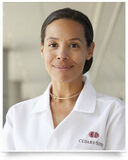What Is A Common Misconception About Mitral Valve Repair?
By Adam Pick on February 19, 2013
At the recent STS conference in Los Angeles, I was able to meet and discuss several important topics about heart valve surgery with leading cardiac surgeons.
In this video, Dr. Marc Gerdisch, MD, who recently performed mitral valve repair on Angie Gregory, addressed a common misconception among patients who have been diagnosed with severe mitral valve disease. That misconception is that a heart valve replacement is better than a heart valve repair. To learn more, please press play on the video. Also, I have included a written transcript for the hearing impaired members of our community below.
I hope this video helped all of us learn more about mitral valve repair surgery. I would also like to thank Dr. Gerdisch for his time and ongoing support of our patient community!!!
Keep on tickin!
Adam
P.S. Here is a written transcript of my video interview with Dr. Gerdisch.
Dr. Marc Gerdisch: I am the chief of cardiovascular and thoracic surgery at St. Francis Heart Center in Indianapolis. I perform the full spectrum of valve operations but specialize in valve repair restoration of normal function of valves, especially the mitral valve — reconstruction of the valve. I’ve performed over 3,000 heart surgeries in my career — about 1,600 of those are valve operations. I’ve been practicing for a over 19 years.
Adam Pick: Hi everybody. It’s Adam with HeartValveSurgery.com. I’m thrilled to be here with Dr. Marc Gerdisch. Dr. Gerdisch I’m just curious to know what attracted you to cardiac surgery?
Doctor Gerdisch: I like the idea of being able to definitively repair and restore things for people. I like the profound relationships that we develop with our patients which are very individual relationships. That means a great deal to me. And I think heart surgery really brings thats home. It is a very uniqure relationship. You won’t have that with anyone else — only you and your heart surgeon will have that relationship.
Adam Pick: So Dr. Gerdisch, when patients are diagnosed with severe mitral valve disorders. They often feel that a valve replacement is better than a valve repair. Can you explained the importance of mitral valve repair?
Marc Gerdisch, MD: Sure, and it is actually a very popular and understandable misconception because the idea that you would be taking something damaged, repairing it only, versus putting in something new and functional. In truth, repairing the mitral valve better longevity of the patient, in other words longer lifespan and a lower likelihood of having complications. But the vast majority of valves that leak, not stenotic not blocked but leaking valves, those valves are vast majority can be repaired and they can really be restored to normal function. In fact, that procedure is so effective when done well that it generally restores people to their normal life curve or life expectancy. In other words, give you back a completely normal functional valve that is made up of your own tissue, that allows you to go on with your life normally. So mitral valve repair has become very important — in that sense and the expanded capabalities to do such procedures has been very powerful and exceptionally positive thing for people with a heart valve disease. (To learn more about mitral valve repair, click here.)
Adam Pick: Can you tell us what are the benefits and expected outcomes from a mitral valve repair surgery?
Doctor Gerdisch: Sure, the statistical benefits that we see are that people have a quicker recovery, lower incidents of complications and that they have better longevity that they live longer and better with better quality because they are not exposed to the risks related to the device implantation.
Adam Pick: Are there any new technology developments that our community may want to know about?
Doctor Gerdisch: We continue to work with and have for over four years tissue regrowth, regenerative technology. The materials that we have been working with — extracellular matrix — which is actually acellular, it has no cells in it, when it goes in, provides a scaffold for the patients’ own cells, allows them to grow their own tissue there and thereby replace whichever portion we have reconstructed with, in fact, their own tissue. Our ultimate goal would be to be able to provide surgeons with an entire valve. An entire valve that would be biologic, fully normally, performing tissue. They could replace the valve and offer the patient the same improved outcomes that we have with (our) mitral valve repair.
- To see patient reviews and learn more about Dr. Gerdisch, please click here.
|
Patrick Chang says on February 20th, 2013 at 12:45 am |
|
Its an interesting topic discussed here today concerning mitral valve repair. I had a mitral valve repair done last month on January 18. My work doctor found a heart murmur which turned out to be a leaking mitral valve. It was a tough decision My surgery went fine. The surgery was done in Hawaii at Straub Hospital by Dr. Mark As with most patients, its a slow recovery but taking it a day at a time. |
 |
|
Paul says on February 21st, 2013 at 5:12 pm |
|
I had a complex repair to my mitral valve on Friday 13th July 2013 after living a very active sports life with moderate regurgitation for over 20 years and finally severe regurgitation for 1 year. The outcome could be classified as amazing. My fitness levels are excellent and getting better every week. Strenuous workouts in the Gym 3-4 times a week with recovery even faster than I did 10 years ago when I hit level 5/6 on Bruce protocol without much effort and was considered pretty fit! Once I found a surgeon, Mr Wells at Papworth, who more or less guaranteed that he would do everything in his power to conduct the repair (and had the stats to back it up), the rest was easy and was one of the best decisions of my life! |
 |
|
Lawrence Omoregie says on February 22nd, 2013 at 7:36 am |
|
Thanks a lot, please i have a 7 year old child with leaking left valves i need info on how to get about saving his life please this is an S.O.S |
 |
|
Lawrence Omoregie says on February 22nd, 2013 at 7:39 am |
|
I have 7 year old child having leaking left valve what best contact do i have to save is life please this is an S.O.S thanks |
 |
|
Lawrence Omoregie says on February 22nd, 2013 at 7:59 am |
|
The leakage is resulting from a rheumatic heart disease |
 |
|
DVB says on February 22nd, 2013 at 11:25 pm |
|
Thanks Adam for posing this important question to Dr. Gerdisch. After my valve surgery people I met seem surprised that I had a repair, not a replacement. But in fact repair is usually possible and has very substantial benefits over replacement. No one should settle for a replacement these days without it being the consensus of multiple expert opinions. The best places to go for expert opinion are specialty centers of excellence and university teaching hospitals. |
 |
|
Art Beem says on February 24th, 2013 at 9:44 am |
|
Thanks to everyone for your input and experience after your mitro valve repair. |
 |











